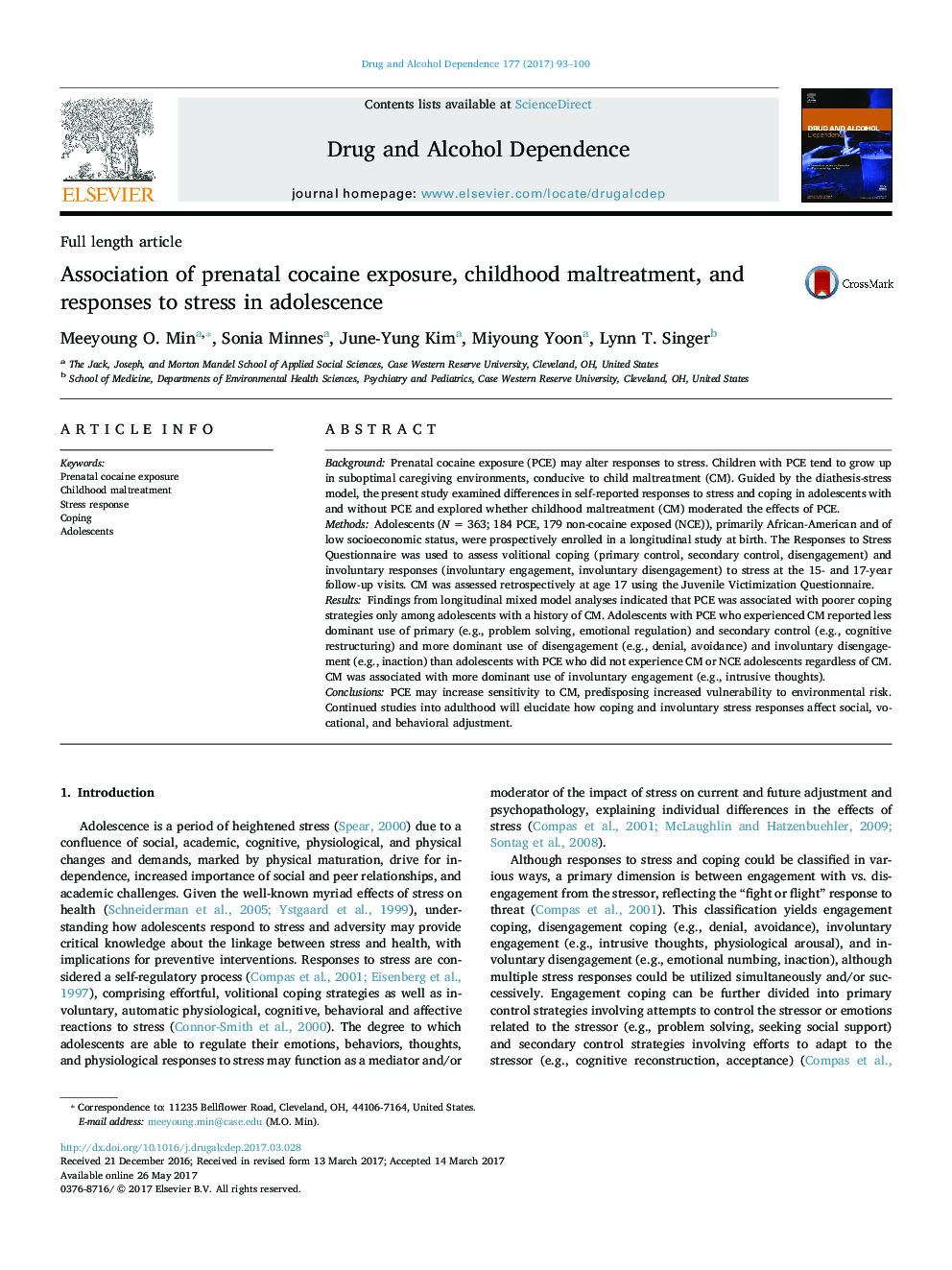| کد مقاله | کد نشریه | سال انتشار | مقاله انگلیسی | نسخه تمام متن |
|---|---|---|---|---|
| 5120029 | 1486114 | 2017 | 8 صفحه PDF | دانلود رایگان |
- Prenatal cocaine exposure (PCE) alters responses to environmental stress.
- PCE may increase sensitivity to childhood maltreatment (CM).
- PCE was associated with poorer coping strategies only among adolescents with CM.
- Greater external assets were related to more effective stress responses.
BackgroundPrenatal cocaine exposure (PCE) may alter responses to stress. Children with PCE tend to grow up in suboptimal caregiving environments, conducive to child maltreatment (CM). Guided by the diathesis-stress model, the present study examined differences in self-reported responses to stress and coping in adolescents with and without PCE and explored whether childhood maltreatment (CM) moderated the effects of PCE.MethodsAdolescents (NÂ =Â 363; 184 PCE, 179 non-cocaine exposed (NCE)), primarily African-American and of low socioeconomic status, were prospectively enrolled in a longitudinal study at birth. The Responses to Stress Questionnaire was used to assess volitional coping (primary control, secondary control, disengagement) and involuntary responses (involuntary engagement, involuntary disengagement) to stress at the 15- and 17-year follow-up visits. CM was assessed retrospectively at age 17 using the Juvenile Victimization Questionnaire.ResultsFindings from longitudinal mixed model analyses indicated that PCE was associated with poorer coping strategies only among adolescents with a history of CM. Adolescents with PCE who experienced CM reported less dominant use of primary (e.g., problem solving, emotional regulation) and secondary control (e.g., cognitive restructuring) and more dominant use of disengagement (e.g., denial, avoidance) and involuntary disengagement (e.g., inaction) than adolescents with PCE who did not experience CM or NCE adolescents regardless of CM. CM was associated with more dominant use of involuntary engagement (e.g., intrusive thoughts).ConclusionsPCE may increase sensitivity to CM, predisposing increased vulnerability to environmental risk. Continued studies into adulthood will elucidate how coping and involuntary stress responses affect social, vocational, and behavioral adjustment.
Journal: Drug and Alcohol Dependence - Volume 177, 1 August 2017, Pages 93-100
